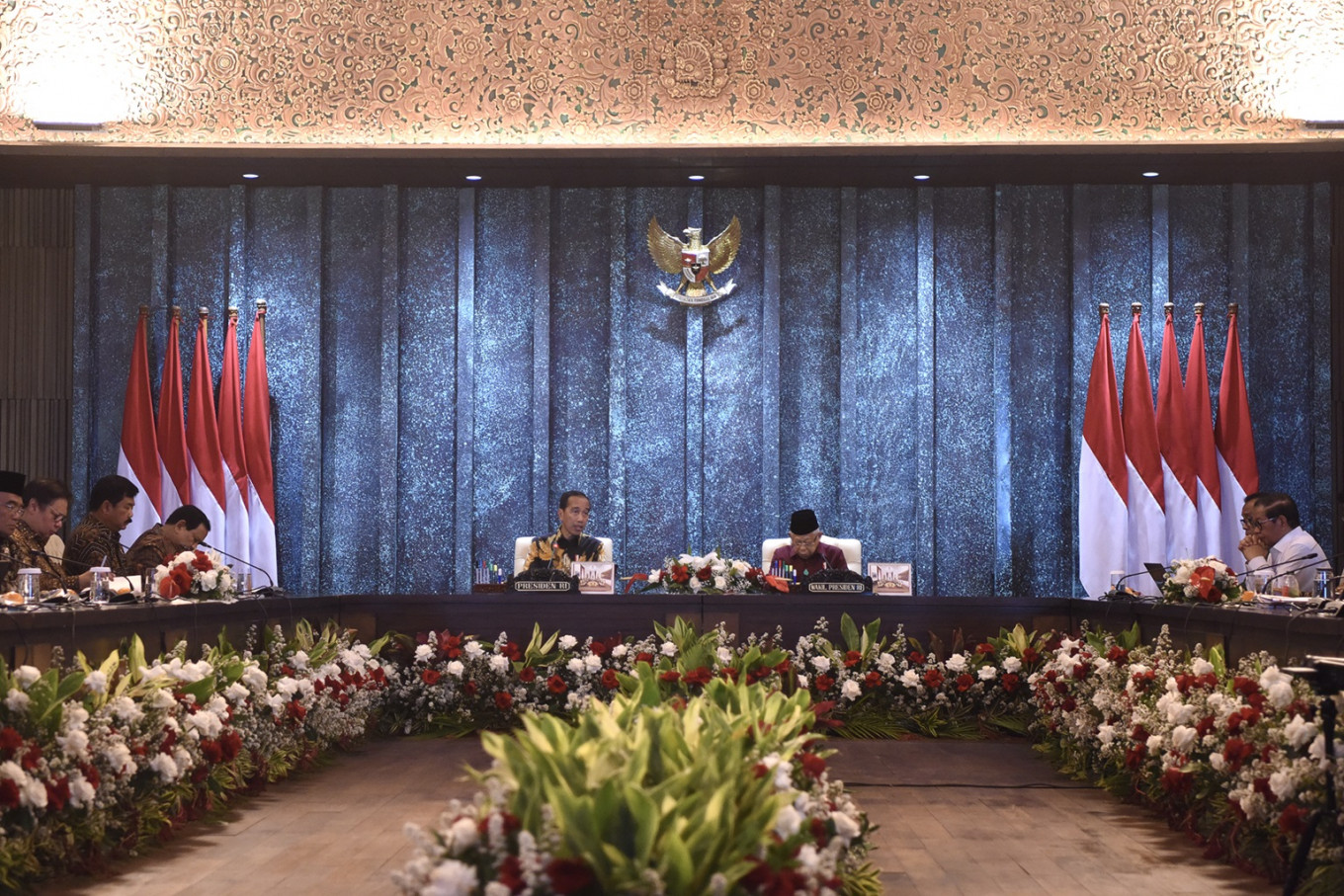Popular Reads
Top Results
Can't find what you're looking for?
View all search resultsPopular Reads
Top Results
Can't find what you're looking for?
View all search resultsBig government: Neither efficient nor effective
Having everyone, or almost everyone, on board, may make for greater political expediency, at least from a president’s point of view, but it’s bad for democracy, and for effective governance.
Change text size
Gift Premium Articles
to Anyone
W
hen it comes to the size of the government, or the cabinet, the adage “small is beautiful” should still hold. Yet with an imminent piece of legislation that will remove the cap on the size of the cabinet, currently set at 34, the incoming government is going to be very big, and it is not necessarily going to be more effective or efficient.
All parties in the House of Representatives have agreed to amend the 2008 Ministry Law, arguing that a president should be given the freedom to determine the size of the cabinet, for greater “effectiveness”. That the legislation is being rushed, as well as its timing, suggest this is designed for president-elect Prabowo Subianto, who will be inaugurated on Oct. 20, so that he can have as many ministers in his cabinet as he sees fit.
The real reason why the House wants to lift the cap is to allow Prabowo to parcel out seats in the cabinet and other politically strategic positions to political parties and special interest groups that will be a part of his administration. He is aiming for an even bigger coalition government than that of outgoing president Joko “Jokowi” Widodo. Those seats are given in return for support and loyalty to the government for the next five years.
Besides eliminating the cap, the new legislation, which is awaiting the formality of the House’s approval, allows a president to appoint politicians as vice ministers, which the current law limits only to career civil servants. The law also dictates that the vice ministers would count as members of the cabinet. If we go by this definition, the size of Jokowi’s cabinet is actually 51 including 17 vice ministers, which already includes some politicians, in contravention of the 2008 law.
It is now almost certain that Prabowo’s cabinet will be even bigger as he has already received the support of seven of the eight political parties that will be represented in the House. The Indonesian Democratic Party of Struggle (PDI-P), with the largest number of seats in the House, is the odd-one-out, though it has not completely ruled out joining the new government. Prabowo will also count on the support of special interest groups like business and religious organizations, as well as the police and the military.
Having everyone, or almost everyone, on board, may make for greater political expediency, at least from a president’s point of view, but it’s bad for democracy, and for effective governance.
It will leave the House of Representatives with little or no effective opposition. All political fights, including the inevitable horse trading will take place within the coalition behind closed doors. The public will virtually have no say in the way policies are made, and transparent government will be thrown out of the window.
Having more ministers and ministries will also be more costly, hence cost inefficient, and it will not necessarily be more effective as the proponents argue. There will be the problem of coordination, especially since the ministers seconded to the cabinet will represent the interests of their party or their affiliations.
Creating new ministries, or breaking existing ministries into single issues – for example there are proposals for spinning off environment from forestry, culture from education and public housing from public works – may lead to greater effectiveness. Past experience however shows that it could take as long as two years before they hit the ground running. There are the issues of finding the new offices, recruitment of the staff and and the creation of the organizational structures and processes. In the first year, with the 2025 budget already apportioned, these new ministries or agencies will be scrounging for funds from other government agencies.
The expansion of the cabinet, and hence the government, looks like a done deal as the House is about to approve the amendments to the law. When Prabowo takes over the presidency next month, the nation has to brace for the incoming of a big government, with all its consequences on democracy and governance.











